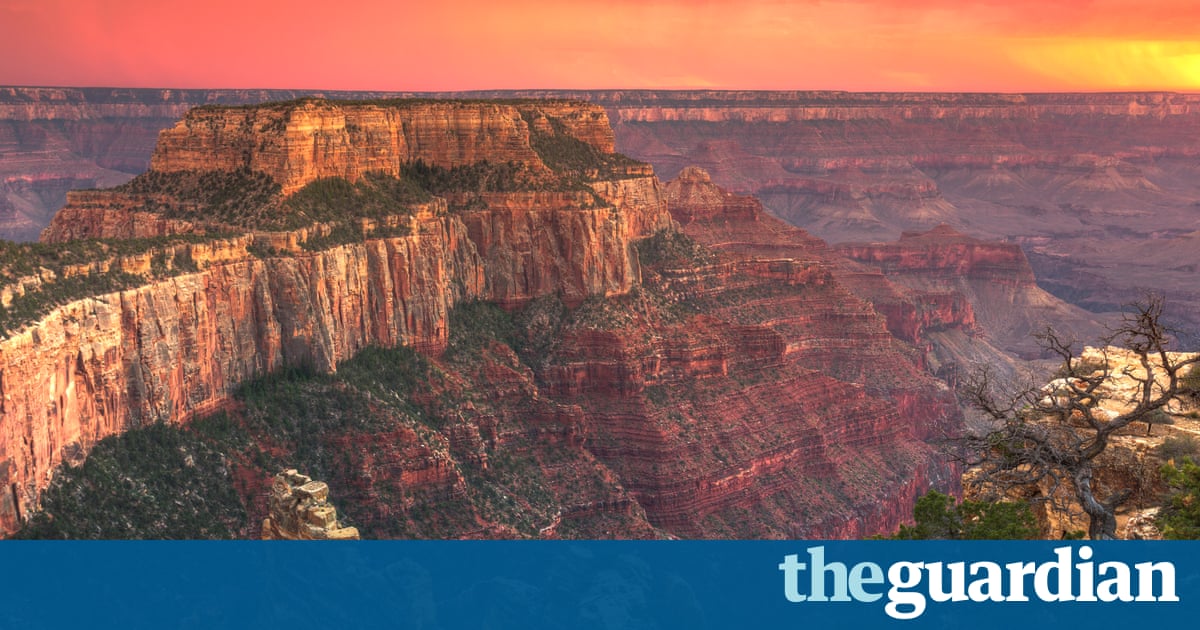Congress moves to give away national lands, discounting billions in revenue and millions of jobs

Though recreation on public lands creates $646bn in economic stimulus and 6.1m jobs, Republicans are setting in motion a giveaway of Americans birthright

In the midst of highly publicized steps to dismantle insurance coverage for 32 million people and defund womens healthcare facilities, Republican lawmakers have quietly laid the foundation to give away Americans birthright: 640m acres of national land. In a single line of changes to the rules for the House of Representatives, Republicans have overwritten the value of federal lands, easing the path to disposing of federal property even if doing so loses money for the government and provides no demonstrable compensation to American citizens.
At stake are areas managed by the Bureau of Land Management (BLM), National Forests and Federal Wildlife Refuges, which contribute to an estimated $646bn each year in economic stimulus from recreation on public lands and 6.1m jobs. Transferring these lands to the states, critics fear, could decimate those numbers by eliminating mixed-use requirements, limiting public access and turning over large portions for energy or property development.
In addition to economic stimulus from outdoor activities, federal land creates revenue through oil and gas production, logging and other industrial uses. According to the BLM, in 2016, it made $2bn in royalty revenue from federal leases. The Outdoor Industry Association estimates federal tax revenue from the recreation economy at almost $40bn.
Ignoring those figures, the new language for the House budget, authored by Utah Republican representative Rob Bishop, who has a history of fighting to transfer public land to the states, says that federal land is effectively worthless. Transferring public land to state, local government or tribal entity shall not be considered as providing new budget authority, decreasing revenues, increasing mandatory spending or increasing outlays.
Essentially, the revised budget rules deny that federal land has any value at all, allowing the new Congress to sidestep requirements that a bill giving away a piece of federal land does not decrease federal revenue or contribute to the federal debt.
Republican eagerness to cede federal land to local governments for possible sale, mining or development is already moving states to act. Western states, where most federal land is concentrated, are already introducing legislation that pave the way for land transfers.
In Wyoming, for example, the 2017 senate has introduced a joint resolution that would amend the state constitution to dictate how public land given to the state by the federal government after 2019 is managed. It has little public support, but Wyoming Senate President Eli Bebout said that he thought the state should be preemptively thinking about what it would do with federal land.
The Congressional devaluation of national property is the most far-reaching legislative change in a recent push to transfer federal lands to the states. Because of the Republican majority in Congress, bills proposing land transfers could now swiftly diminish Forest Service and BLM lands across the country.
We didnt see it coming. I think it was sneaky and underhanded. It exemplifies an effort to not play by the rules, said Alan Rowsome, senior director of government relations at The Wilderness Society. This is the worst Congress for public lands ever.
Rowsome said hes not exactly sure how the rule will be used, but he thinks the first places to come under attack might include areas adjacent to the majestic Grand Canyon National Park in Arizona and Minnesotas Boundary Waters Canoe Area Wilderness. Those areas hold uranium and copper, respectively.
Rowsome said hes worried that sensitive tracts of public land, like the oil-rich Arctic National Wildlife Refuge, could soon be up for sale. Some 60% percent of Alaska is made up of national land, and the states representatives have tried to pass laws claiming parts of it for state use as recently as 2015. Its amazing ecosystem and worthy of protection, and its very likely that House Republican majority will open that up for drilling, Rowsome said.

This latest effort comes on the heels of a bill adopted in 2016 that directs the Department of Agriculture to transfer 2m acres of eligible Forest Service lands to each state.
Giving away national land has been part of the Republican Party platform since the mid-80s, after Reagan declared himself a Sagebrush Rebel, but its regained steam in the past few years as 20 states have introduced some form of legislation suggesting that federal property be given to local governments.
In 2015, Bishop and fellow Utah representative Chris Stewart formed the Federal Land Action Group, a congressional team with the specific intent to come up with a framework for transferring public land. Washington bureaucrats dont listen to people, Bishop said in a statement. Local governments do.
But Rowsome argues thats a populist message without any popular support, pushed by a small faction of legislators with support from industries like mining and energy. Despite the Republican message that Washington has overstepped in designating national parks and monuments, a 2016 study found that 95% of the American public believes that National Parks are worth protecting and 80% said theyd be willing to pay higher taxes to do so.
Western Republicans that are perpetuating the idea are very well funded by the oil and gas industry during their campaign, Rowsome said. Its special interests wielding power for an agenda that will advance their goal. Nearly 90% of BLM lands are already open, but they cant stop trying to get more.
A 2016 Colorado College survey of seven western states found that 60% of voters rejected both the sale of public lands to states and giving states control without sale.
In 2012, Arizona voters struck down two pieces of legislation that would have turned over federal land to the state, including one that claimed the Grand Canyon as state land.
Opponents fear that local governments, especially in states with small budgets, wont be able to invest in management and will sell off land to make money. Last summer, the Forest Service was spending $240m a week to suppress wildfires, and the Department of Interior estimates the cost of deferred maintenance, like updating roads, at around $11bn.
In December, Wyoming Governor Matt Mead said that transferring public land to his state was legally and financially impractical. He cited firefighting costs on public land as something that the state budget wouldnt have room for.
Historically, when federal lands have been transferred to states, they have become less accessible. Idaho sold off almost 100,000 acres of its public land between 2000 and 2009. In Colorado, access has been limited the public can only use 20% of state trust land for hunting and fishing.
John Gale, conservation director for the advocacy group Backcountry Hunters and Anglers, said that hes worried about access for sportsmen. He believes that theres a further danger in segmenting ecosystems through state-by-state development.
70% of the headwaters of our streams and rivers in the West are on public lands, he said. Rivers and migratory corridors dont follow state boundaries.
The incoming administration hasnt been clear about where it falls on transfers. Montana Congressman Ryan Zinke, tapped to be the next Secretary of Interior, voted for the rules package, but in the past hes been against land transfers. President-elect Donald Trump has spoken out against reallocating federal land, but hes also met with prominent pro-land transfer groups.
Nevertheless, bills proposing land transfer will now have an easy route to passage, as they wont need to be backed by any financial justification.
The entire rules package passed on party lines, but it runs counter to legislation that passed both the House and Senate in November, the Outdoor Recreation Jobs and Economic Impact Act of 2016. Signed into law in December, the legislation requires the Department of Commerce to count the over half a trillion dollars from the outdoor recreation economy in the countrys GDP for the first time.
Its not just natural resources that are on the auction block, but jobs, said Gale. For a party that prides itself on being fiscally conservative … theyre talking out of both sides of their mouth.
Read more: https://www.theguardian.com/environment/2017/jan/19/bureau-land-management-federal-lease